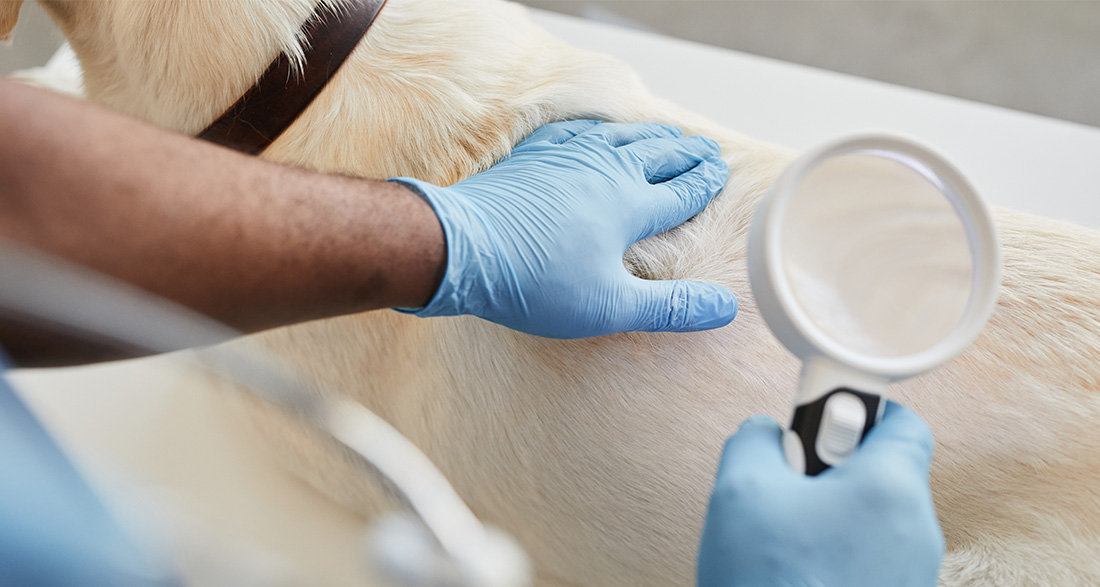Skin problems can lead to hair loss, itching, and a dull coat in dogs. Learn how to help your dog and restore its fur to its former radiance.
What Causes Skin Problems in My Dog?
Have you noticed that your dog has been scratching more than usual lately or is suffering from hair loss, and its coat doesn’t shine as beautifully as before? Skin problems may be the culprit. These can have various causes. Our iHugDogs veterinarian discusses common symptoms and causes of skin problems in dogs in this article and explains when you should consult your veterinarian.
Skin Problems with Hair Loss and Itching in Dogs
Is your furry friend scratching a lot and experiencing hair loss? The reasons for this can be diverse, categorized into infectious and immunoreactive causes:
Infectious Causes:
Infectious causes include parasites, bacteria, and fungal infections:
Parasites
Parasites are the most common cause of itching with hair loss. Ticks, fleas, and mites are among the most well-known ectoparasites. But lice and fleas can also play a role in our four-legged friends. Some feed on blood, causing itching due to bites and crawling on the body. Additionally, some dogs may have an allergy to flea saliva, leading to severe symptoms with even minimal flea infestation. Adequate flea prevention is crucial, especially for these dogs.
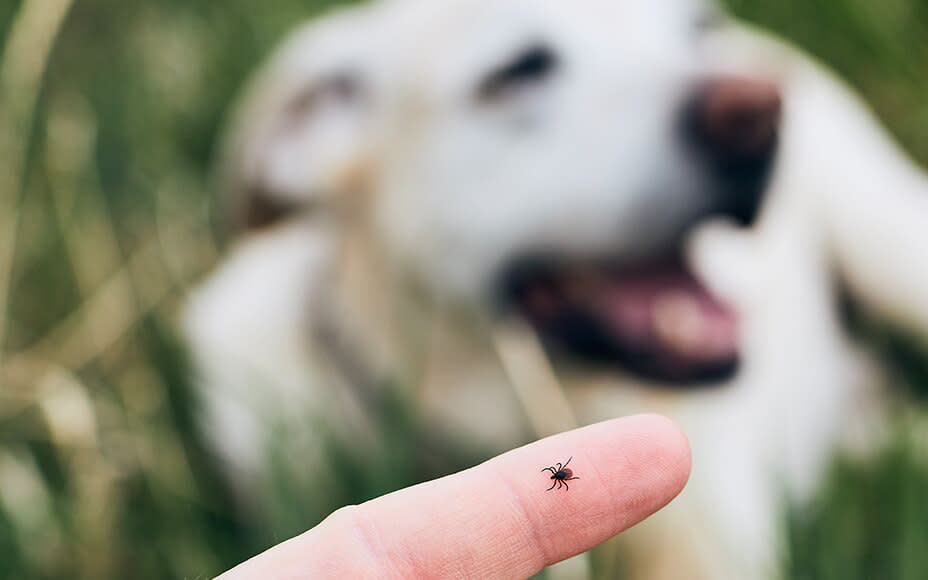
Bacteria
Another infectious cause of itching in dogs is bacteria. Often, an allergy is the underlying factor, creating a vicious cycle. The allergy causes itching. Scratching by the dog leads to inflammatory reactions on the skin, allowing bacteria to settle, leading to more itching.
Moreover, skin folds are often affected by bacterial dermatitis. This occurs when there is “excess” skin, and folds of skin overlap, such as around the lips, around the eyes, or in the vulva area. Friction and moisture create an ideal habitat for bacteria. Irritation and bacteria then cause itching.
Dogs with a lot of loose skin, such as Shar-Peis or short-nosed breeds like the Pug or French Bulldog, are particularly affected.
Fungal Infections
Another infectious cause of hair loss with itching is fungal infections. These changes can be treated with antifungal medications, specifically designed to address fungal infections.
Immunoreactive Causes
In addition to parasites, allergies are one of the most common causes of hair loss and excessive scratching, licking, and chewing on the paws. Our dogs can be allergic to various things, such as dust mites, mold, flea saliva, or grass.
Food allergies are also possible. According to a study, most food allergies are attributed to the following allergens: beef, grains, rice, chicken, dairy products, lamb, pork, fish, turkey. The diagnosis of a food allergy can only be confirmed through a several-week elimination diet. This involves using a meat source that your furry friend has never eaten before and a hypoallergenic carbohydrate source, such as our hypoallergenic food.
Additionally, there are some autoimmune diseases that can cause itching and hair loss. Examples include lupus erythematosus or pemphigus foliaceus. Other potential causes of itching may include disorders of skin formation (keratinization disorder) or certain types of tumors.
As you can see, there are numerous causes of hair loss with itching. If you notice that your dog is constantly scratching and licking, you should definitely schedule an appointment with your veterinarian to identify the cause and choose an appropriate therapy together.
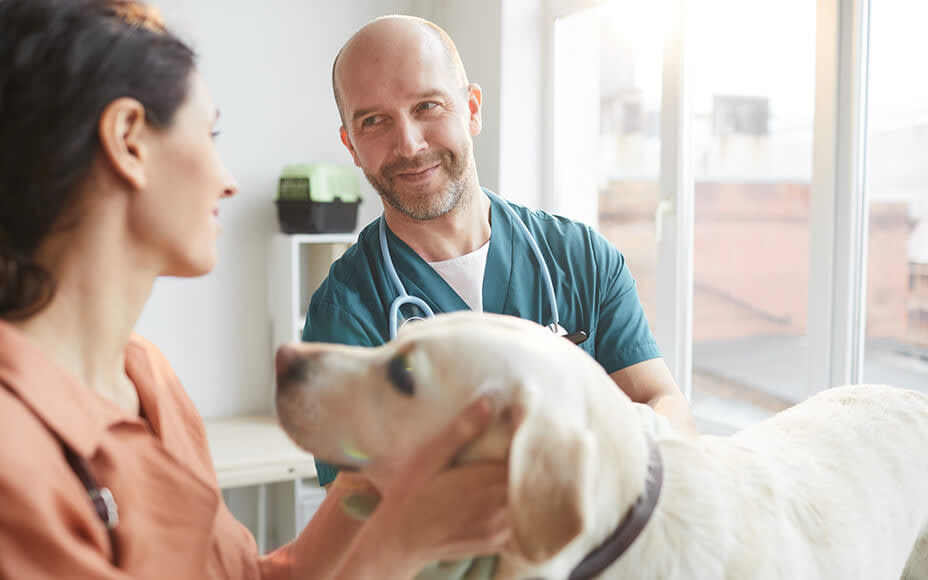
Skin Problems with Hair Loss without Itching in Dogs
If your dog is experiencing hair loss without any itching, there are usually other causes:
Endocrine Causes
Endocrinological diseases affect the hormone-producing organs of the body. When these organs are affected, hair loss can be one of the symptoms. For example, hair loss on the abdomen is typical in Cushing’s syndrome.
Nutritional Causes
Hair loss without itching can also be caused by nutritional deficiencies. Vitamin A or E deficiency, insufficient essential fatty acids, or deficiencies in biotin and zinc can lead to hair loss. Therefore, pay attention to a healthy and balanced diet for your dog.
A look at the labels of conventional dog food reveals that different standards apply to the nutrition of quadrupeds than to ours. Often, animal by-products, sugar, grains, and other questionable additives are found. The correct composition of the food consists of meat (or vegan or vegetarian protein sources like millet or amaranth), vegetables, fruits, oils, and herbs, significantly influencing your dog’s health.
Other Causes
Psychogenic, toxic, or traumatic causes can also be the reason for hair loss. Stress or anxiety can also trigger skin problems such as dandruff or acute hair loss. Perhaps your pet’s collar or harness is rubbing, causing hair loss in certain areas.
Causes of Dull Coat in Dogs
Your beloved pet is neither suffering from itching nor hair loss, but its coat no longer shines and appears dull? This is often due to nutritional causes. Not all available pet foods are ideal in composition, leading to a deficiency in certain nutrients and vitamins. Especially during coat shedding, the need for specific nutrients may be increased. A high content of grains or added sugar can promote the growth of “bad” bacteria in the gut, resulting in a dull and lackluster coat. Therefore, healthy nutrition is crucial, and you can also support your dog’s skin and coat health with our Skin & Coat Tabs.
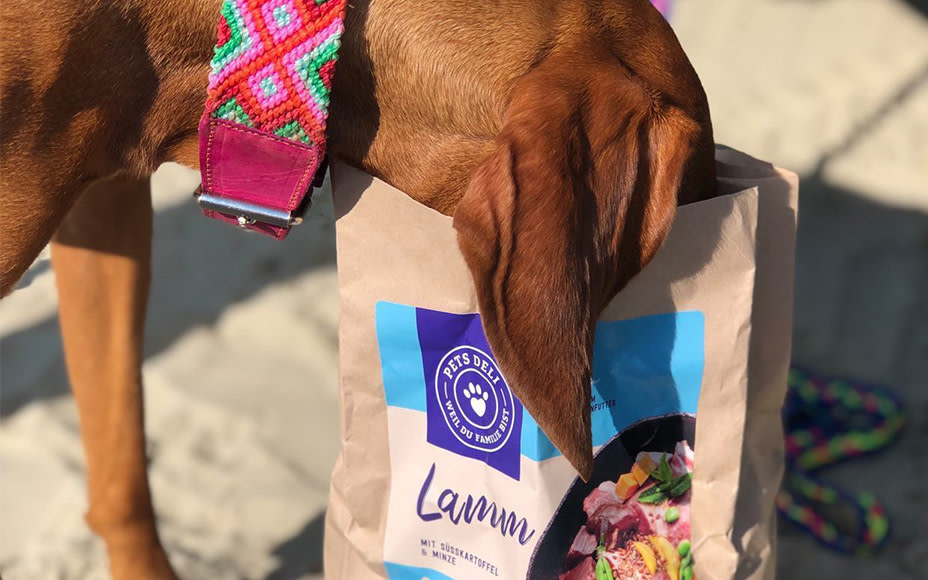
How Can I Help My Dog with Skin Problems?
Skin problems in dogs can manifest with various symptoms, and the causes are diverse. Since severe illnesses can be behind itching and hair loss, you should definitely seek veterinary advice for your furry friend. Only through a thorough examination and, if necessary, further diagnostics can the source of your pet’s problems be identified.
If your beloved pet has a dull coat, and everything is normal in the examination by your veterinarian, there are a few things you can do.
High-Quality Food
As mentioned above, not every available food is ideal in terms of nutrient and vitamin composition. Make sure to buy high-quality food without added sugar.
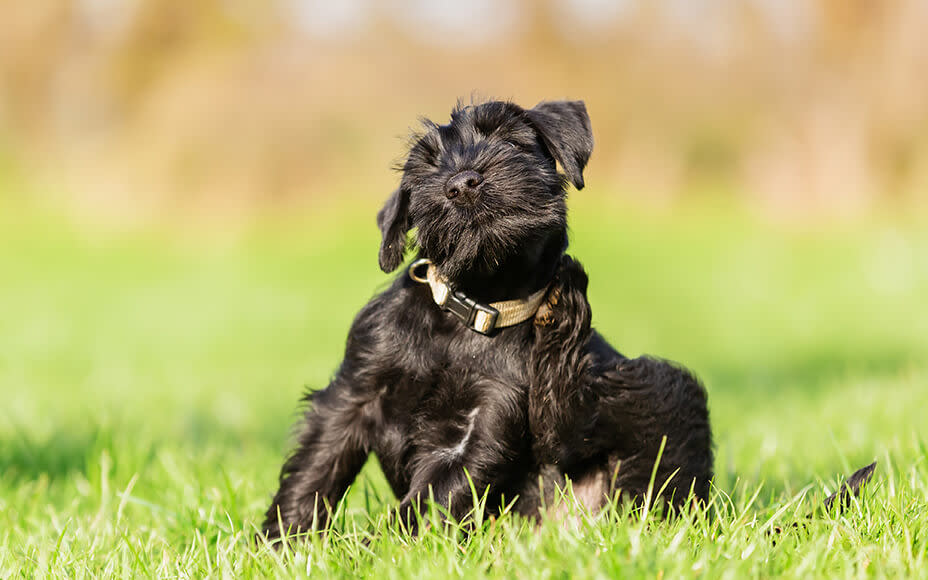
Avoid Excessive Washing
Frequent bathing of your pet can destroy the body’s protective skin barrier, leading to flaky and dry skin.
Regular Brushing
If you regularly brush your pet’s coat, it removes dead skin cells and loose hair. Additionally, it can stimulate skin circulation, contributing to a shiny coat.
Oils and Other Additives
Omega-6-rich oils, brewer’s yeast, and biotin can help bring back the radiance of your pet’s coat. Particularly suitable oils include safflower oil, evening primrose oil, grape seed oil, hemp oil, black cumin oil, or our skin and coat oil. You can simply mix a little of it into the food every day (the amount varies depending on the oil). Additionally, there are supplements that provide your pet with an extra dose of vitamins and nutrients for skin and coat health.
The treatments for skin problems are as diverse as the causes. Parasites can be treated with medications, while nutritional deficiencies can be identified through blood tests. Autoimmune diseases and allergies require more extensive diagnostics and therapy.
We wish you and your furry friend all the best and hope that you find out the cause of your pet’s skin problems and quickly find a suitable solution.


